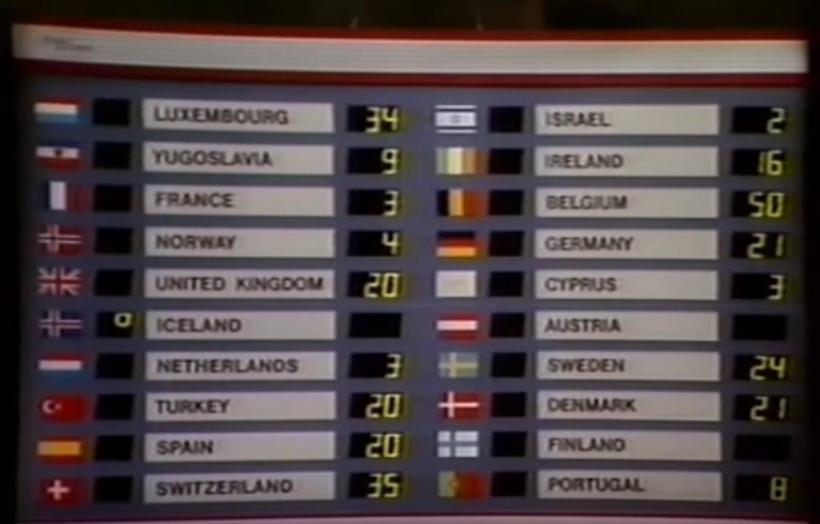Thirty years of Iceland in Eurovision


Eurovision fever has gripped fans across the continent today as tickets for the 2016 Eurovision Song Contest – to be held in Stockholm, Sweden – went on sale this morning.
As the continent takes a step closer to the big night, thoughts in Iceland – a Eurovision-crazy country if ever there was one – inevitably turn to the Icelandic entry and the prospect of musical victory in Europe.
2016 is a special year for Iceland, as it is the 30th anniversary of the country’s first ever participation.
Iceland arrived late on the Eurovision scene, taking part for the first time in 1986. Pálmi Gunnarsson, Eiríkur Hauksson and Helga Möller – known imaginatively as ‘Icy’ – sang and shoulder-padded their way to a disappointing 16th place with their pleasing ditty Gleðibankinn (‘Bank of Fun’).
‘Pleasing’ is a bit of a weak accolade – Gleðibankinn is an Icelandic pop classic known by absolutely everybody and loved (openly or secretly) by most. Despite the poor result, Iceland has never looked back, taking part in every Eurovision Song Contest since 1986, qualification procedures allowing.
Iceland’s fortunes in the Eurovision Song Contest have gone up and down over their thirty-year journey, but national enthusiasm for the all-singing, all-dancing extravaganza has never waned.
We’ve seen it all – from last place in 1989 to two second places, including the sublime All out of Luck performed by Selma Björnsdóttir, cruelly denied victory in 1999 by an inferior Eurovision-by-numbers entry from Sweden.
And who can forget Páll Óskar’s ahead-of-its-time atmospheric pop-dance number Minn hinsti dans, complete with intimate touching and PVC-clad Icelandic beauties?
But a Eurovision victory still eludes this beautiful Nordic nation.
The task of finding the song to attract douze points from Amsterdam to Zagreb falls to the Söngvakeppni Sjónvarpsins, Iceland’s pre-selection competition run by national broadcaster RÚV.
This year’s Söngvakeppni is taking place thirty years after Iceland’s first Eurovision entry and RÚV promises a fun-filled celebration of Iceland in Eurovision, not forgetting of course the small matter of choosing the Icelandic song for 2016.
Twelve songs will compete for the signal honour of representing Iceland next May in Stockholm. There will be two semi-finals, followed by a final taking place on Saturday 20 February.
Related article:









